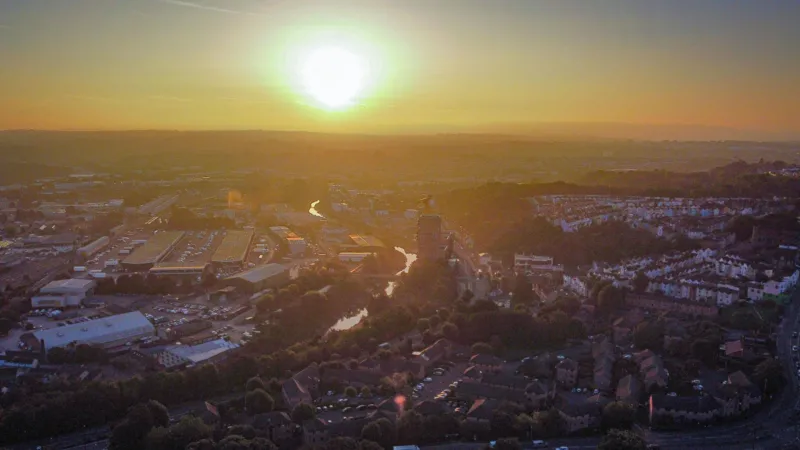Lower carbon emissions recorded in city in 2022
Lower carbon emissions were recorded in 2022, according to the latest government figures.

In Bristol, 1.57m tonnes of greenhouse gases were emitted, down 7.5% from 2021.
It is believed that warmer temperatures and higher bills prompted people to use less energy.
The new data from the Department for Energy Security & Net Zero will help council bosses focus their efforts on reaching net zero in the city.
Changing how the city heats homes will be a key area of focus over the next few years with planned expansions to district heat networks, grants for heat pumps and upgrades to insulation, the Local Democracy Reporting Service said.
Emissions from industry and the commercial sector have fallen the most while transport emissions have barely reduced over the same period.
Transport emissions in Bristol have barely changed
They fell slightly in 2022 by less than 1% after previously rising between 2020 and 2021 following the lifting of lockdown restrictions.
The latest figures will barely take into account the effect of the Clean Air Zone which launched in November 2022.
However, this was introduced to reduce nitrogen dioxide, rather than carbon dioxide.
Many cars - particularly hybrid, electric and modern petrol vehicles - are compliant with the zone.
Drivers with heavily-polluting vehicles are charged when entering the Clean Air Zone
Nitrogen dioxide directly harms human health while carbon dioxide is the main greenhouse gas causing climate change.
Climate change is the long-term shift in the Earth's average temperatures and weather conditions.
Over the past decade, the world was on average about 1.2C warmer than during the late 19th Century.
It has now been confirmed that global warming exceeded 1.5C across the 12-month period between February 2023 and January 2024.
That followed 2023 being declared the warmest year on record.
The temperature increase was driven by human-caused climate change and boosted by the natural El Niño weather phenomenon.
The UK has pledged to reduce its greenhouse gas emissions to net zero by 2050, meaning the country will take as much of these planet-warming gases - such as carbon dioxide - out of the atmosphere as it puts in.
-bbc







